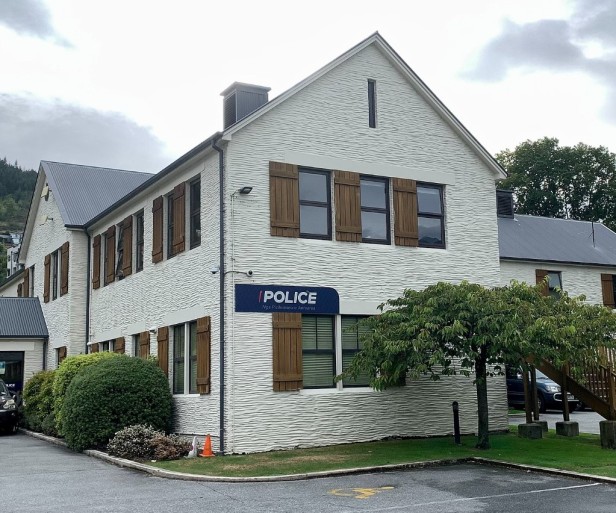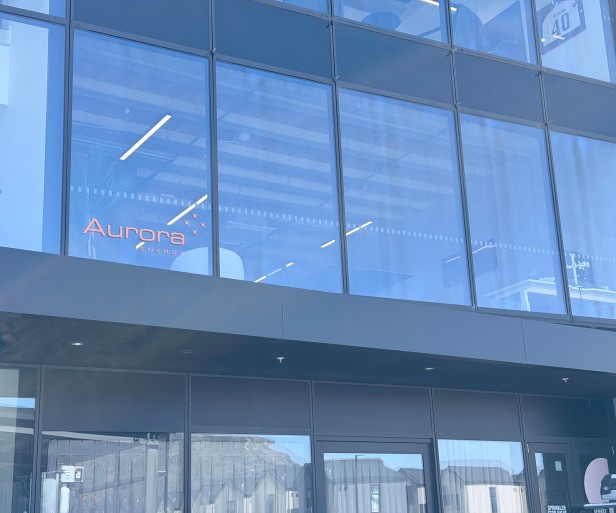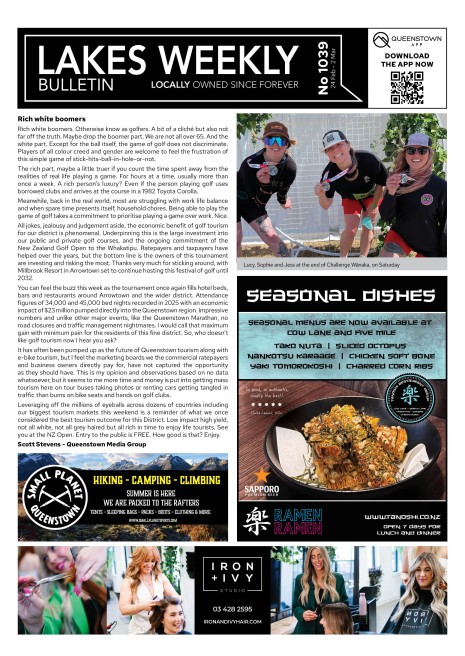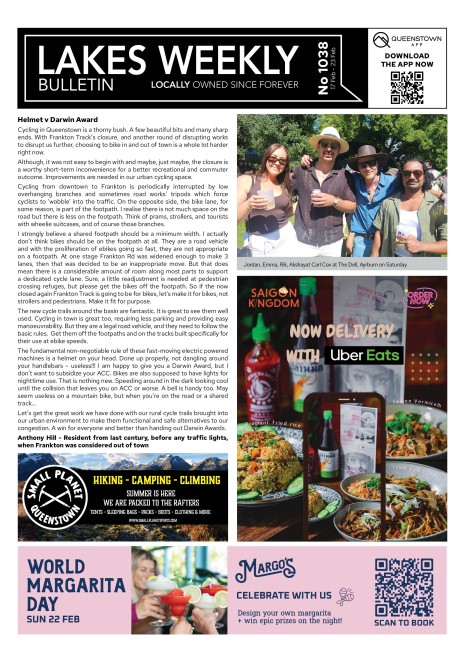Housing protest just the beginning - organisers
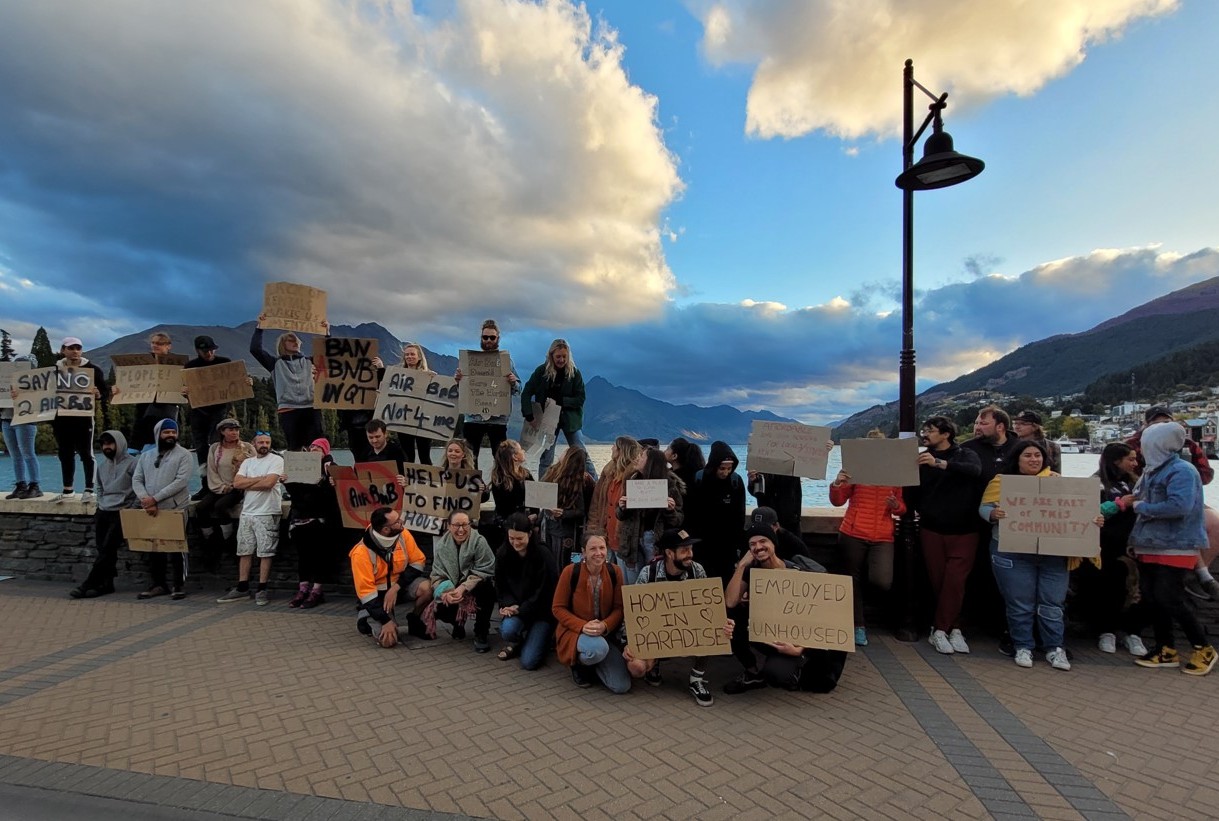
"It's time to wrap this up, some of us have got tents to go home to".
There was some gallows humour to end last night's passionate protest about Queenstown's rental crisis, which saw around 70 people gather on Marine Parade near the waterfront to demand urgent action.
Holding placards, some placing the blame squarely on Airbnb, the protestors shared stories of their evictions, the fruitless and frustrating search for somewhere to live, and the reality of living in tents, vehicles, or relying on the generosity of friends for a couch or floor to sleep on.
Organiser Hannah Sullivan reckons there are hundreds and hundreds of people left without suitable accommodation.
"It's becoming a very sad situation," she says. "The first thing we need is some emergency housing, because there isn't any in Queenstown.
"They're talking about bringing more people into work but we need to look after the people who are already here.
"We've met a family of six who are living out at 12 Mile. They had housing sorted and had come down from North Island to work, but got a phone call on the way down to say they didn't have the house anymore.
"They're living in a campsite."
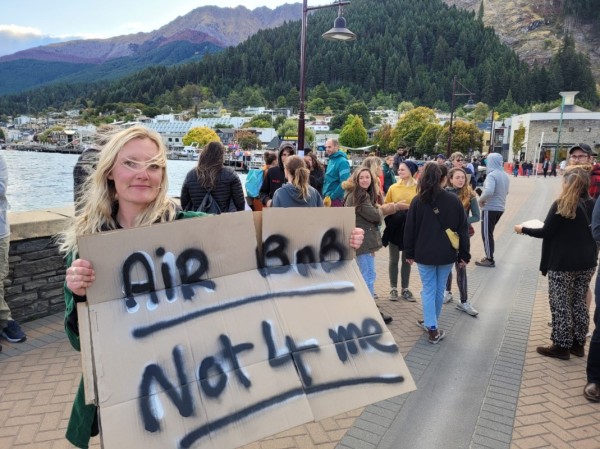
Hannah Sullivan
Sullivan herself became homeless after returning from a trip home to Scotland, served with a 90-day notice for a property she'd lived in for four years, on Sydney Street. She's staying at a friend's house.
"I went to Citizens Advice and they said I was the sixth person who'd been in that day. The guy before me had a six-year-old kid. It's families this time around, not backpackers.
"There's no one helping us, no aftercare once you're evicted."
Bardeaux barman George White has been in Queenstown four years. He was served an eviction notice from his property in November, with the landlord saying he wanted to use it for as a "commercial purposes".
"So Airbnb, basically, I think," he says. "It was absolutely gutting to get the notice, because I know everyone is struggling to find accommodation."
White is staying with his partner but there's not really the space for them in the shared house.
"We've gone to upwards of 30 viewings, all group viewings, with 20 to 30 people. Everyone is in a line, waiting to talk to the rental agent, desperate. You'll be stood behind a family, and it's your turn to talk next. You don't want to take the place ahead of them, so you feel bad, but need someone to go home to after work.
"It's pretty stressful."
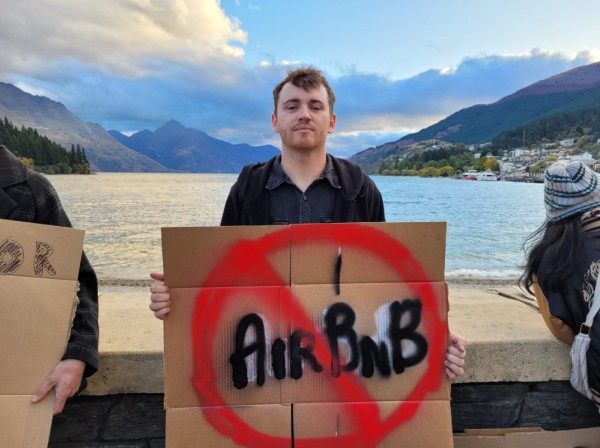
George White
White says some of the rental agents have been "brilliant", helping out as much as they can with applications, but there just aren't enough rental properties to go around.
He'd like to see a cap placed on Airbnb but recognises that's something difficult to achieve.
"I don't know what the solution is but something has to happen, though, because the list of people looking for somewhere to live is just getting longer."
And it's not just 20 somethings and young families who are struggling.
Gray Power member Fiona Lawson, at the protest, says there are a number of local older people reaching retirement age, without much security over where they are living.
"They're almost invisible because it's a generation that just accepts it and gets on with it," she says.
"People should be able to retire with dignity, and stay in Queenstown where some have been their whole lives, but it's getting harder and harder," she says.
"They can't afford the rent, which is going up all the time.
"They've paid their dues over the years, paid rent which pays a landlord's rates, and are part of the fabric of the community. They're the ones that volunteer. Increasingly, they're becoming the ones who fill in the gaps in the workforce too."
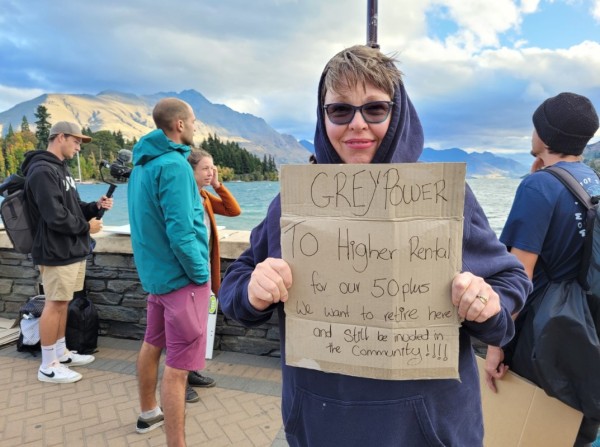
Fiona Lawson
Queenstown's National MP Joseph Mooney, at the protest, places the blame with the Government.
Mooney says the stricter rules over long-term tenancies, the removal of interest-deductibility for rental landlords, and the increase of the Brightline test from two to 10 years, has all contributed.
"Labour's made it a lot less attractive to become a landlord and I think they've gone too far," Mooney says.
"There has been a war on landlords and tenants have been the casualties of that."
Mooney doesn't believe the answer lies in capping Airbnb. He looks to the 2018 census, which showed more than a quarter of the properties in Queenstown are holiday homes which sit empty most of the year.
"If just one percent of those homes became available for rent, that's 800 beds, which would house all the people here tonight and go some way to fixing the problem.
"We need incentives for those property owners to begin renting them out."

National MP for Southland (including Queenstown) Joseph Mooney
The number of rental properties on the market is at its lowest level since the early stages of the Covid pandemic, according to a labour report published in December.
National's housing spokesperson MP Chris Bishop is due in town in the next few weeks for talks with Mooney.
"We'll look at what can be done to address this and our policies. One thing I'd say is we need a short-term solution but also a long-term plan for building enough housing to meet the need, because we have a growing population."
Mooney says the question of whether rates should be increased on vacant properties is one for the mayor, Glyn Lewers.
Lewers didn't attend last night's demo. Councillor Craig 'Ferg' Ferguson appeared to be the only elected member to turn up.
One solution gaining traction is for businesses to house workers. Skyline is converting a wing of its Blue Peaks motel for staff accommodation, while NZSki has taken over the former Sir Cedrics Tahuna pod hostel on Henry Street.
Queenstown Business Chamber of Commerce is running a free three-part Staff Housing Information Series to provide more detail about purchasing, leasing, and managing worker accommodation to help business leaders with decision-making.
But Simon Edmunds, who runs the Queenstown Workers Collective and wants to get more union representation in town, says that can be a double-edged sword.
"It can be quite dangerous for workers," Edmunds says.
"You only need to look at the RSE Scheme in the North Island to see the exploitation and abuses that can happen to employees trapped in places their employers control.
"From our point of view, the Chamber series should involve unions from the start, especially Unite and First Union."

Simon Edmunds
Edmunds has a meeting with Chamber boss Sharon Fifield on Thursday.
"We'll ask why aren't workers more involved in this, their voices should be heard. But also, what will be done on the compliance side, because this won't be a normal landlord-tenant relationship. You need checks in place."
Protest organiser Sullivan, who gave an impassioned speech last night, also says this is just the beginning, with more demonstrations and action planned.
"As a community, we're suffering because of this. Our businesses are struggling, our families, our mental health, everything is absolutely in a dire situation right now," she says.
"We're at boiling point and something needs to be done."


